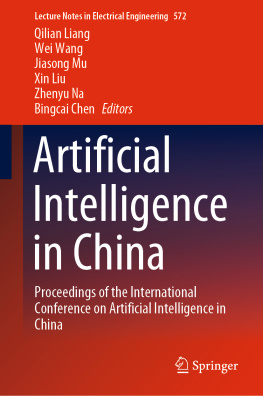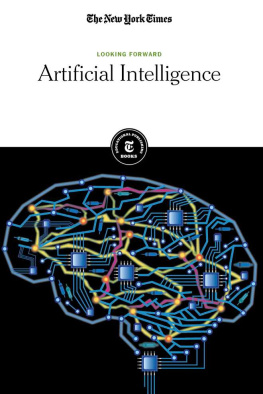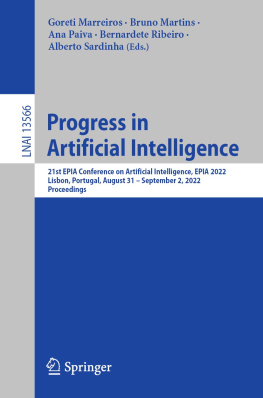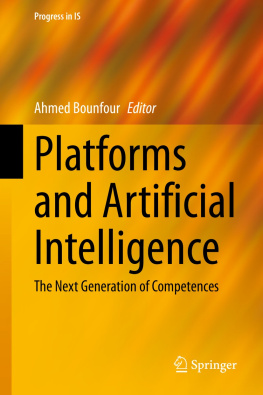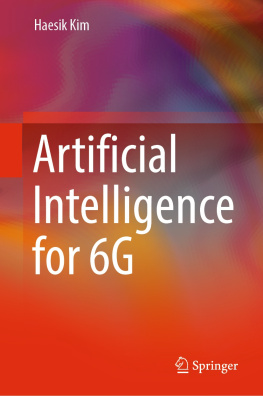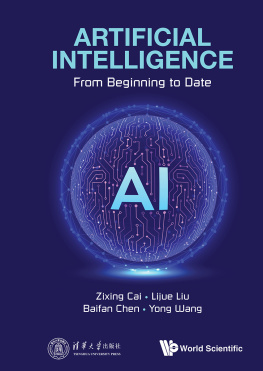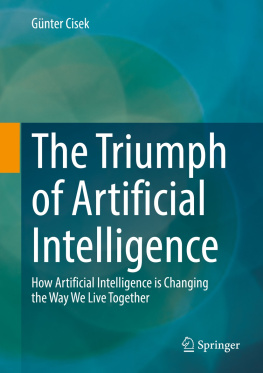Yarden Katz - Artificial Whiteness: Politics and Ideology in Artificial Intelligence
Here you can read online Yarden Katz - Artificial Whiteness: Politics and Ideology in Artificial Intelligence full text of the book (entire story) in english for free. Download pdf and epub, get meaning, cover and reviews about this ebook. year: 2020, publisher: Columbia University Press, genre: Politics. Description of the work, (preface) as well as reviews are available. Best literature library LitArk.com created for fans of good reading and offers a wide selection of genres:
Romance novel
Science fiction
Adventure
Detective
Science
History
Home and family
Prose
Art
Politics
Computer
Non-fiction
Religion
Business
Children
Humor
Choose a favorite category and find really read worthwhile books. Enjoy immersion in the world of imagination, feel the emotions of the characters or learn something new for yourself, make an fascinating discovery.

- Book:Artificial Whiteness: Politics and Ideology in Artificial Intelligence
- Author:
- Publisher:Columbia University Press
- Genre:
- Year:2020
- Rating:4 / 5
- Favourites:Add to favourites
- Your mark:
- 80
- 1
- 2
- 3
- 4
- 5
Artificial Whiteness: Politics and Ideology in Artificial Intelligence: summary, description and annotation
We offer to read an annotation, description, summary or preface (depends on what the author of the book "Artificial Whiteness: Politics and Ideology in Artificial Intelligence" wrote himself). If you haven't found the necessary information about the book — write in the comments, we will try to find it.
Yarden Katz: author's other books
Who wrote Artificial Whiteness: Politics and Ideology in Artificial Intelligence? Find out the surname, the name of the author of the book and a list of all author's works by series.
Artificial Whiteness: Politics and Ideology in Artificial Intelligence — read online for free the complete book (whole text) full work
Below is the text of the book, divided by pages. System saving the place of the last page read, allows you to conveniently read the book "Artificial Whiteness: Politics and Ideology in Artificial Intelligence" online for free, without having to search again every time where you left off. Put a bookmark, and you can go to the page where you finished reading at any time.
Font size:
Interval:
Bookmark:
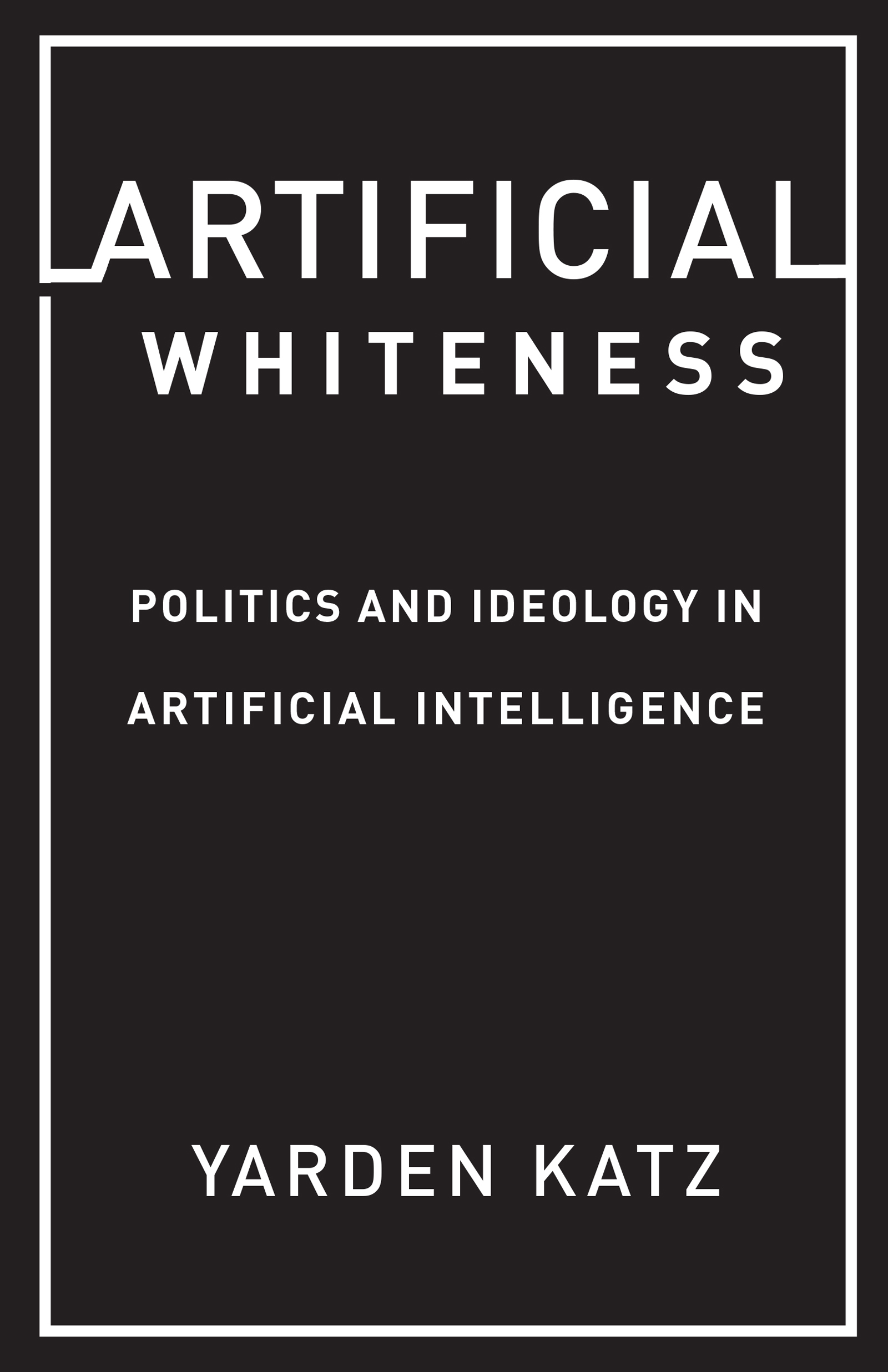
ARTIFICIAL WHITENESS
ARTIFICIAL WHITENESS
POLITICS AND IDEOLOGY IN ARTIFICIAL INTELLIGENCE
YARDEN KATZ
Columbia University PressNew York

Columbia University Press
Publishers Since 1893
New York Chichester, West Sussex
cup.columbia.edu
Copyright 2020 Yarden Katz
All rights reserved
E-ISBN 978-0-231-55107-6
Library of Congress Cataloging-in-Publication Data
Names: Katz, Yarden, author.
Title: Artificial whiteness : politics and ideology in artificial intelligence / Yarden Katz.
Description: New York : Columbia University Press, 2020. | Includes bibliographical references and index.
Identifiers: LCCN 2020017166 (print) | LCCN 2020017167 (ebook) | ISBN 9780231194907 (hardcover) | ISBN 9780231194914 (paperback)
Subjects: LCSH: Artificial intelligenceMoral and ethical aspects. | Artificial intelligencePolitical aspects. | Male domination (Social structure) | White supremacy movementsPhilosophy. | Imperialism and science. | LogicPolitical aspects.
Classification: LCC Q334.7 .K38 2020 (print) | LCC Q334.7 (ebook) | DDC 303.48/34dc23
LC record available at https://lccn.loc.gov/2020017166
LC ebook record available at https://lccn.loc.gov/2020017167
A Columbia University Press E-book.
CUP would be pleased to hear about your reading experience with this e-book at .
For Azoul, our embodied marvel who loves the earth and the sun
T his book is rather personal for me. It is the outcome of a zigzag path that began while I was a teenager and got interested in computer science, and then philosophy, and what I think I thought then, with some hesitation, was their intersection: artificial intelligence. My subsequent experiences doing research around the academic field that goes by that label, after having taken too many analytic philosophy courses in college, cultivated this misunderstanding. It took years of unlearning to come to a different view, which this book attempts to synthesize. I hope my idiosyncratic presentation will be useful to some, especially those already suspicious of fields and their labels.
Thinking about the phenomena described in this book hasnt really been a pleasant experience. It reminds me of a story about the journalist Seymour Hersh. When Hersh completed his book on the notorious strategist of American empire, Henry Kissinger, he sent a copy to one of Kissingers vociferous critics, Noam Chomsky. Chomsky wrote Hersh back that his book was really fabulous, apart from the feeling that one is crawling through a sewer. While Kissinger the man plays only a small role in my bookthough what he represents certainly looms largein writing it, I also felt like I was crawling through a sewer. Reading the avalanche of AI propaganda is a demoralizing experience (regrettably, some of that ugliness is reproduced in these pages). And propaganda aside, the developments described here are not positive.
Hardly hidden in this work is a tale about the American academy and its world of knowledge production, which suffers under slow violence as it fuels faster violence nearly everywhere. There is a depressing willingness on the part of academics to serve empire and the corporate world with remarkable flexibility. The services are provided under the banner of working for the good of all, and while unblinkingly appropriating the language of radical social movements and struggles (the discourses on AI that this book examines provide another example). The realms of computing that this book is concerned with feel particularly compromised. Nonetheless, I have tried to highlight the cracks and openings to alternatives within this system.
A pall of sadness becomes almost a constant presence for anyone who wishes to revisit the corrupt association between American science and race in the centurythe nineteenthwhich ended with the appearance of moving pictures. In a better world, a world so different from the one this science helped to create, one might avert ones eyes. But good manners are a luxury which these scientists forfeited, willfully and frequently. They gave little quarter to those whom they regarded as their inferiors, dismissed and hounded those critics whom they could not summarily dispatch, and thoroughly enjoyed their social standing and each other.
Cedric Robinson
A rtificial intelligence (AI) is capturing many minds. The famed physicist Stephen Hawking said the creation of effective AI may be the biggest event in the history of our civilization, or the worst. AI has become a global media phenomenon.
An industry of experts from the academic and policy worlds has emerged to interpret AIs significance. According to the experts, AI could grow the economy and free people from labor burdens, help address climate change, remove the bias from the courts of law, automate scientific discovery, reinvent journalism (and hence democracy), and potentially produce, not long from now, superhuman intelligent machines that may launch new civilizations across the galaxy.
As is often the case with matters concerning science and technology, the ensuing conversation has been largely ahistorical. Many are willing to ponder the awesome benefits or perils of AI, but few ask what it actually is. And even if we presume to know what it is, why is it being talked about so much now? In other words, what were the developmentspolitical, material, and otherwisethat made AI a mainstream focal point?
To the extent the latter question arises, it tends to be shrugged off as obvious. The ready-made answer is purely technical: larger data, faster computers, more advanced algorithms. These breakthroughs have supposedly led to a state where machines rival, and may soon exceed, the capacities of human thought.
A received wisdom thus formed: AI is a coherent and powerful force, made possible by recent breakthroughs in computing. It is a force poised to change everything, to bring about utopia or disaster. For reasons elaborated in the pages that follow, this received wisdom, like so many others, obscures the phenomena it purports to explain. Moreover, the fact that these critical questions about AI are hardly raisedyet conversations continue at full speedseems as important to making sense of AI as anything having to do with computers, data, or algorithms.
The mathematician and philosopher Gian-Carlo Rota noted that every concept is a drama which conceals the backstage of its constitution, a drama that followed a tortuous path of remembrance and oblivion, through cataclysms and reconstructions, pitfalls and intuitions and finally arrived at a construct, the object, which naively believes itself to be independent of its past. This book is an attempt to step away from the self-evident discourse on AI and into the backstage of its constitution. I want to read AIs present through its past and by examining the political and ideological projects served by its reappearances.
The term Artificial Intelligence was coined by the American mathematician and computer scientist John McCarthy in the 1950s. It quickly became an evocative label for an academic field, a concept, and an industry. AI often drew great media attention. Yet this pursuit was also under scrutiny by both computing insiders and invested outsiders. Critics asked: Was AI a science? Or simply a quest to automate well-defined tasks of industrial production? And when would AI deliver the human-level intelligence in machines that invested military patrons so desire? According to conventional accounts, this skepticism led to the so-called AI winter (typically dated to the 1980s), a period when interest in the endeavor had purportedly waned. Recent commentators say AI has recovered at full strength, entering an eternal spring.
Font size:
Interval:
Bookmark:
Similar books «Artificial Whiteness: Politics and Ideology in Artificial Intelligence»
Look at similar books to Artificial Whiteness: Politics and Ideology in Artificial Intelligence. We have selected literature similar in name and meaning in the hope of providing readers with more options to find new, interesting, not yet read works.
Discussion, reviews of the book Artificial Whiteness: Politics and Ideology in Artificial Intelligence and just readers' own opinions. Leave your comments, write what you think about the work, its meaning or the main characters. Specify what exactly you liked and what you didn't like, and why you think so.

